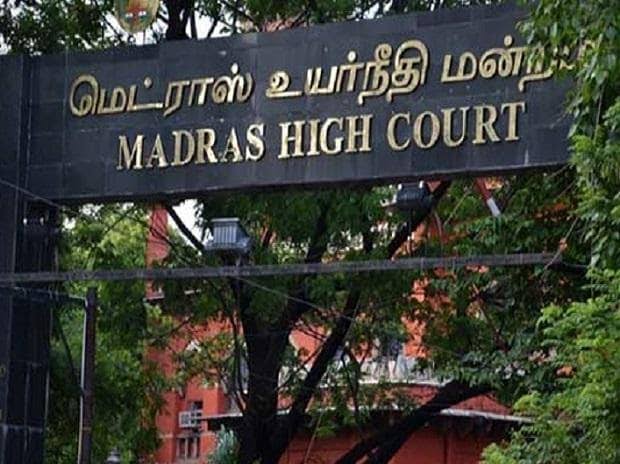


The Supreme Court was on Thursday privy to a sharp exchange of words between Solicitor General Tushar Mehta and Senior Advocate Kapil Sibal during the hearing of the plea filed by the Enforcement Directorate (ED) challenging the Tamil Nadu government’s probe into bribery allegations against ED officer Ankit Tiwari [Directorate of Enforcement v. State of Tamil Nadu].The matter was heard today by a Bench of Justices Surya Kant and KV Viswanathan, which eventually decided to issue notice to the DMK government and listed the matter after two weeks.The Court also hinted that guidelines could be evolved to tackle apprehensions of bias by state investigation agencies or "vindictiveness" by central investigating agencies such as the ED and the Central Bureau of Investigation (CBI).“Ultimate objective is fair and objective investigation so no guilty goes scot-free…Mechanism can be devised. No guilty should go scot-free under veil of counter allegations. It can then apply in other states also then, one by one. Pan-India basis,” Justice Surya Kant said.“You (central agencies) have officers all over. We are not saying you have been vindictive, but if so, imagine what will happen to the country, our setup. That is why some kind of screening mechanism before probing (should be put in place),” Justice Viswanathan suggested.The Bench was hearing a plea by the ED opposing the alleged non-cooperation of the Tamil Nadu government in sharing FIRs concerning probes into offences under the Prevention of Money Laundering Act (PMLA). Tiwari was arrested after allegedly having been caught accepting a bribe of ₹20 lakh from a doctor in Dindigul.
The ED also prayed that the probe into the bribery case against Tiwari be handed over to the CBI. The case is currently being probed by the Tamil Nadu Directorate of Vigilance and Anti-Corruption (DVAC).The Madras High Court had, in December, dismissed the bail plea filed by Tiwari.The Court’s observations today came amid cross-allegations by counsel for the Tamil Nadu government and the ED, both of whom accused the other of improper conduct.Appearing for Tamil Nadu, Senior Advocate Kapil Sibal raised concern that a challenge to the State government’s investigation would adversely affect State autonomy in a federal system like India.“ i have preliminary objections…This is not political. The federal structure (is affected),” Sibal argued.Representing the ED, Solicitor General Tushar Mehta countered that the State government was making the case political.“It is now political with his (Sibal’s) statement. We were not on larger federal structure,” Mehta contended.He also indicated that the State may have launched the investigation against the ED officer since many of the State’s Ministers were under the ED’s scanner in money laundering or mining cases.Sibal responded that the ED’s investigation in such cases was flawed.“ED FIR in all offences is wrong in law. It can only happen if, after proceeds of crime, there is attempt at laundering,” Sibal said as the hearing progressed.The Court, meanwhile, reiterated that larger guidelines could be devised to allay any and all apprehensions about bias in investigations, whether by state or central agencies.“Probes have to be fair. Something has to be evolved. Genuine cases, no one should go scot-free...So your preliminary objections may not stand,” Justice Viswanathan said, addressing Sibal.After Court dictated its order for the day, Sibal also questioned why the ED was not proceeding against Ministers in other states such as Uttar Pradesh and Assam (both of which presently have BJP-led governments).“No ECIR for sand mining in other states. What about UP?” Sibal asked.
“I cannot...State should not protect accused ministers,” SG Mehta maintained.“Then investigate all the FIRs against Assam Chief Minister,” Sibal countered.“Again it is political. He forgets he is not in a rally!” Mehta replied.“He always shouts to try and control the court,” Sibal commented before storming out of the courtroom.The Court also questioned whether the ED's claim that the FIRs filed by the Tamil Nadu police in PMLA offences were not being shared publicly, was true."What is secrecy in FIRs? Why are they not on the website?” Justice Surya Kant asked.“FIR is supposed to be on website,” SG Mehta added.
“They are,” Sibal replied.“State's website of police is blocked under order of competent authority. Lordships may check,” SG Mehta added.“It is not,” Sibal maintained.This question was left unresolved as the Court proceeded to issue notice in the matter. It also ordered that the case material concerning Ankit Tiwari be shared with the Court by the next hearing date.
TAGS: ED (Enforcement Directorate) Tamil Nadu government FIRs (First Information Reports) Prevention of Money Laundering Act (PMLA)